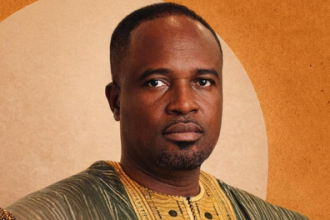I was motivated to write this piece after the killing of my brother L/CPL Martin Babah on 19/01/2021 of Dunkwa on-Offin police just in my jurisdiction. I remember how I picked his lifeless body from a Commercial Bank bullion van. It was followed by another attack on my brother Constable Emmanuel Osei who was brutally murdered on 14/06/2021 at James Town.
I have read, watch and listened to series of social media commentators, security experts and other stakeholders on the issue of insecurity in the country. In my opinion, I think one important issue has been left out undiscussed and I believe it is a contributory factor.
His Lordship the Chief Justice, please in my opinion I believe the abuse or inappropriate application of the celebrated Martin Kpebu case which judgement was delivered on 5th May 2016, is one of the major causes of the supposed insecurity in the country Ghana now. Why do I say so?
I believe the application of the case of all offences is bailable is a contributing factor. The offences I am much concerned with are Murder, Robbery and Possession of firearms and ammunition. Suspects involved in the above cases are now granted bail just after a first or second appearance before the court when the prosecution is ready and in some instances when the prosecution has served all relevant documents to rely on for the commencement of the case management conference. My biggest worry is that these same persons or accused are the same people coming back to torture the community in violent crimes.
At this point I will like to refer to a statement by Modibo Ocran, JSC in the case of Gorman vs the Republic which reference was made by Benin JSC in the Martin Kpebu case Supra “Undergirding on our principles for a decision on bail applications is the effective enforcement of our criminal law guided by due process considerations, which constitute the procedural aspects of the commitment to protect the liberty of the individual. A true system of criminal justice must indeed reflect both aspects of criminal jurisprudence. If not, one of two consequences will follow, either the law enforcement agencies of the state ride roughshod had over the right of the accused, or criminals would have a field day in the system as they roam the street in full liberty and with contempt for the efficacy of our criminal enactment”.
I perfectly agree with this quote and that is what is exactly happening in the system. All these criminals have been arrested one way or the other. After bail, they disappear to a different jurisdiction in the country and continue with their expeditions.
Again in the judgement of the presiding judge the former chief justice Mrs Wood in the Kpebu’s case asked this question. Does it mean striking down the impugned legislation, exposes this nation to grave risk, since the well-intentioned, albeit unconstitutional, invalidated legislation, was designed to promote national and international security and stability, by offering protection against violent crimes?
A careful read of the judgement by the court in Kpebu’s case. I did not see and observe even as the court striking down the non-bailable phrase under section 96(7) of Act 30 did not in any way give a free bail in all offences before a court.
I must say as lawyers when engaged by their clients, must apply any available means to seek bail for their clients. The lawyer’s job is to get the instructions from his client done and the courts failed to apply the law properly or inappropriately will not be his problem since it goes to his advantage.
His Lordship the chief justice, my research in cases pending before the court around my jurisdiction also informed me in putting up this opinion. Serious Robbery committed by accused before courts are on bail, some of them have jumped bail and can’t be found. Whilst on bail, others also continue with their Robbery to be able to pay their lawyers for their defence. The issues I am raising have been raised by a circuit court judge whilst in his court. In the said judge’s opinion, he does not grant bail in such cases when the facts and evidence by the prosecution are overwhelming and incriminating.
On the other hand, some colleagues have mentioned whilst taking views over this issue mentioned some District Courts are granting bail in Murder cases which in my opinion they don’t have jurisdiction.
No jurisdiction of bail by District Courts was discussed by Benin and Dotse JSC in Kpebu’s case. Interestingly, lawyers go to the District Courts with the same authority and asked Magistrate to grant bail and they go-ahead to do so.
I must say position and application of the law by Court drew my attention to what Dotse JSC said on page 56 of the Kpebu’s case “The decision of my brother Benin JSC, in which I concur is not a carte blanche for the courts to admit every Tom, Dick and Harry to bail pending trial because of the removal of the statutory shackles in the impugned section 96(7) of Act 30”.
He went on at page 67 and said “In associating myself with the decision of Benin JSC, I urge that practice direction be given by this court, under our decision in this case which should serve as as a guide to all courts on how their discretion in the exercise of the right to grant or refuse bail application must be conducted”.
His Lordship, to me I have not heard of this practice direction suggested by Dotse JSC and this I believe have left the vacuum and the misapplication of the law on bail (I stand to be corrected). The courts need a practice direction to guide the criminal jurisprudence. The case of Baffour Bonney and others which gave rise to the “disclosures” which is now practised in all courts is a good example. The practice direction by the Supreme Court guide judges in its application.
The Attorney General in its capacity with the Police Administration trained its prosecutors. I believe practice direction will guide us all. In a recent case, I was arguing over with a lawyer in a case of Murder when he made a bail application. He asked me to tell the court which specific law states accused persons cannot be granted bail in murder cases by District courts. I could not answer. Even though I am not a lawyer, after that case I decided to research the law and Interestingly in Kpebu’s case, references by Benin and Dotse JSC concerning the Constitution and the court’s Acts. In my opinion, the constitution and the court Act did not specifically mention the District court shall not have the power to grant bail in indictable offences. There is an argument that since the District Court is the court of the first instance and has the power to remand, the court will also have the power to grant bail. This practice direction will bring closure to this vacuum in my opinion.
I know and have heard from several suspects that every offence is bailable now and there is no regret in some suspects involved in violent crime when taken to court. The most worrying aspect of it is that, in another case of Martin Kpebu where surety to an accused is now a civil contract and can not be prosecuted criminally as it used to be. This position of the law I perfectly agree and it must be so but now the accused take advantage of this position. When an accused is granted bail, he escapes and does not come back. The surety becomes a free man one way or the other because the police are not vested in civil procedure to restrict the bail sum on the surety. At the end of the day case die, accused is a freeman in another jurisdiction.
My Lordship, the practice direction should give distinction between summary trial and indictable offences and how its bail application should be handled. I believe the insecurity in the country as alleged is more important to be dealt with. I chose the heading, *Fundamental human rights at the expense of National Security* because, it seems to me the courts are busy with the human rights of accused persons in serious and violent crimes without taking look at the security implication is breeding. The anthem of some armed Robbers and people in violent crime is that “when you are arrested and your lawyer come you will be granted bail”.
I again will state, I am not against the judgement and the position of Kpebu’s case but I am against its application by the court in terms of serious and violent offences. I do not want to mention any specific case because I also believe in the discretional powers of the court. I believe my opinion will give an affirmative response where data will be collected from the court indicating otherwise. This I believe will help my Lordship understands the situation.
My Lordship, please this free bail as I call it by our courts is one of the reasons for the looming supposed insecurity and it must be dealt with as a matter of urgency.
I suggest a practice direction, His Lordship the Chief Justice, my take. (Critique are welcomed).















